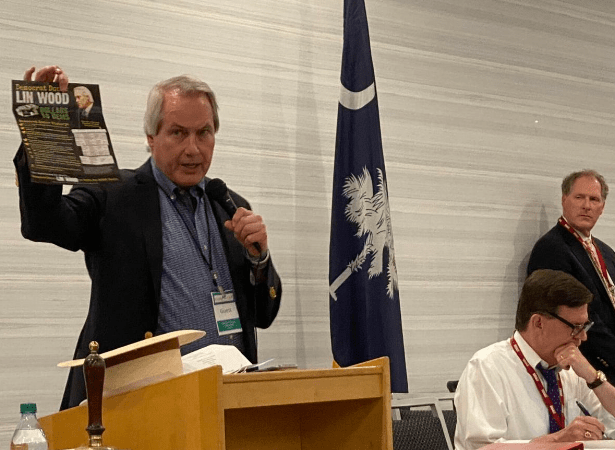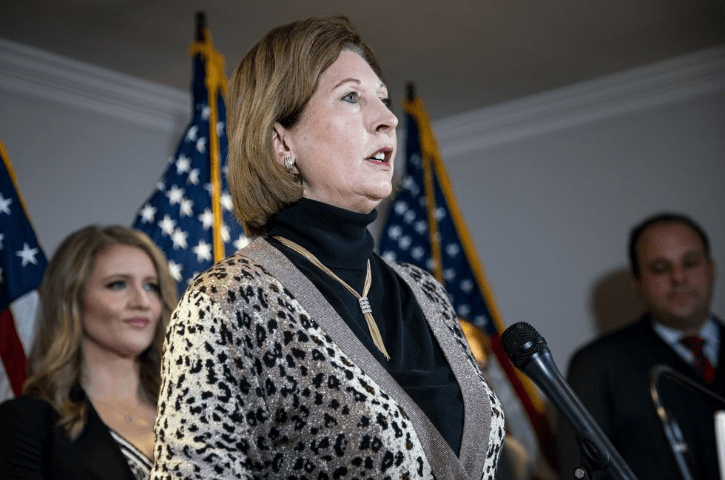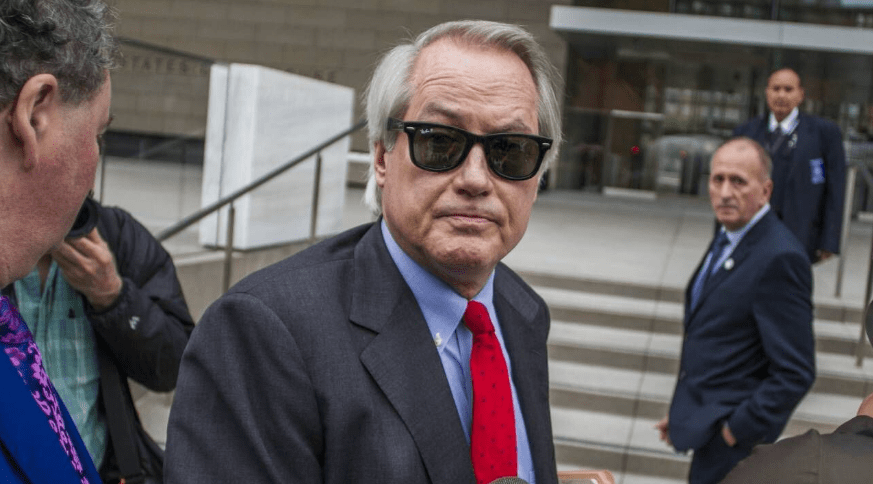Wood served as a professional injury attorney, particularly in medical negligence lawsuits, after graduating from law school in 1977. He had a reputation as a “celebrity lawyer” who specialized in blasphemy cases. Wood first gained national recognition for his defense of Richard Jewell, a security officer wrongfully convicted in the 1996 blast at Atlanta’s Centennial Olympic Park. Lin Wood’s advocacy of Jewell enabled him to transition from a private injury attorney to a nationally recognized defamation attorney.
Around 2020, as an attorney, though as a political researcher and virtual internet figure, Lin Wood gained a lot of recognition for his advocacy of mystery notions. Wood encouraged false narratives on moral grounds of former President Donald Trump since Joe Biden managed to win the presidency referendum, stating that Trump had been elected with 70% of the ballot and that a small society of global socialists, Chinese intellectual ability, and Republican officials conspired to collect the vote from Trump.
Wood, often in collaboration with President Trump’s lawyer Sidney Powell, represented the administration in several unsuccessful challenges to prevent the validation of legitimately cast votes in the president’s campaign. Judge Linda Parker of the Michigan District Court claimed that their purpose for launching the action was to “shake public belief in the electoral vote and their confidence in our democracy” and that granted their sought protection would “greatly impair the national good.” As a result, Wood and Powell were recommended for impeachment by the city of Detroit.
History of the Lin Wood:
Wood’s father admitted to unintentional homicide and sought funds to employ an attorney to sue him in court. He stated, “I only recall how I got as they said they’d assist me.” “And at the moment, I realize wondering to myself, perhaps one day I’ll be capable of making someone feel the same way.” He went to Mercer Law School during high school and worked at a men’s apparel store, as a sporting events writer for the Macon News, and as a medical clerk, among other odd jobs.
Wood established the company in 1983 with the help of lawyers Jack Moore and Wayne Grant. Wood remember, “Those two initial number of years were rough.” “We had to rely on borrow funds and leased time to get by.” However, his aptitude to select the proper clientele propelled his profession on the appropriate path. He stated, “I would not want to defend a person who is corrupt.” “I have a keen eye for discerning deserving clients. It is, for the most part, instinctive. I admit that it’s an imprecise science.”
Despite popular opinion, he declines some substantial clients. “I’ve had a lot of high-profile personalities approach to me about the notion of initiating libel suits, and I’ve thought their intentions were more about connect themselves to my status as a victim advocate, or ‘the cursed,’ and to attempt to exploit it,” he said. So that’s something I’m not even in the habit of just doing.”
Lin Wood’s numerous relationships, as well as his wife:
Lin Wood has publicly confessed to his nasty side instead of his private life, and so has his spouse. “After my first wedding, I left several victims on the roadside,” Wood stated in the very same statement. “I have not yet always been a saint.” His past is unknown, although he has been separated three times and has already been remarried to Debby’ Debbie’ Wood, his fourth wife, for almost 18 years. “I was able to nurture four children effectively.
So far, everything has gone well,” he stated. “I truly decides not to enjoy my life in the manner in which I was nurtured. I was resolved to have never had a child grow up in that kind of surroundings.” His wife’s identity is unknown, and the family has continued to maintain their private lives private. He plays golf, punches, and has competed in horse jumping events in addition to his professional endeavors. In an honest admission, he also said that practicing law is his first love.
Wood, his lady, and their four children reside in the upscale Sandy Springs neighborhood. Two of his children, according to accounts, are lawyers. He keeps his earnings hidden, but once discovered, he costs clients a 40% commitment fee and does not compensate them for his TV interviews.
Early childhood of Lin Wood:
Wood was raise in Raleigh, North Carolina, and move to Macon, Georgia, three years old. He said that his family circle was financially strap and that his father was subject to domestic violence regularly. Diane Wood Stern, his sister, was born in February 1951, and Linda Martin, his half-sister, was born in 1946. When Wood arrived back within a week of a dance recital at 16, he discovered his dad had stabbed his mother to death. L. Lin Wood Sr. is agree to entreat confesse to unintentional homicide, a charge that was lower from first-degree murders to accidental manslaughter.
As a result, he was incarcerate for just over two years. This incident, according to Wood, cemented his earlier determination to become a lawyer. Wood attended Mark Smith High School in Macon, Georgia, where he earned a degree in 1970. He received his bachelor’s degree from Mercer University in 1974 and his law degree from Mercer University School of Law in 1977. He became a member of the Georgia Bar. Wood practiced law in Georgia from 1977 until 1996, specializing in injuries sustained and medical negligence lawsuits.
Everything to know about American attorneys:
Throughout the United States, an attorney at legislation (or defense lawyer) is a licensed professional who is lawfully eligible to indict and assert acts in court on behalf of clients. Counseling (or social worker) and lawyer are other words for the same thing. There were 1,225,452 which was license lawyers in the United States as of April 2011. According to a recent poll besides LexisNexis Martindale-Hubbell, 58 million Americans sought legal advice in the previous year, with 76 percent of those seeking legal advice using the Internet. Despite numerous other general law regimes, the United States judicial system doesn’t distinguish between lawyers who appear in court and those that don’t.
While in the United Kingdom, governments differentiate among attorneys who do not appear in courts and lawyers in the English, Welsh, and Northern Ireland systems and advocacy in the Scottish system. Civil law regimes, on the other hand, differentiate among lawyers and civil law registrars. Another feature distinguishing the American judicial system from other nations is that ordinary labor is not delegates to the registrar’s public.
Most independent professionals and attorneys in small businesses are stuck in a rut regarding individual advertising. After the day, the duties of practicing law and owning a business frequently take precedence over law firm advertising.
Where do we begin our search for an attorney?
There are numerous methods for locating a trustworthy attorney. A referral from a close person, colleague, or professional acquaintance is among the best. Therefore, keep in mind that every legal matter is unique, and an excellent attorney for somebody else might not have been appropriate for you or your legal issue.
In courtroom, jurisprudence graduates:
After completing their initial year of Law University and specific second-and third-year coursework in areas including such proof. Many courts permit law students to serve as “licensed student lawyers.” In addition, numerous states require central panel interns to advocate inside a judiciary if they fulfill specific requirements, including completing at least a portion of their legislation primary education, despite taking or currently taking the law school’s economics course, and being supervised by a competent licensed attorney.
Qualification required being an attorney in America:
Many lawyers in the United States restrict their practice to specific areas of law. Despite the absence of current patent practice, differences among various sorts of attorneys are frequently identify, and these are neither set nor official lines. Prosecution attorneys (including the late Johnnie Cochran, who argued the facts) vs. appealing attorneys (who argue the law, such as David Boies).
Despite these statements, some states prohibit or discourage attorneys from claiming specialty in specific jurisdictions. Unless recognized by their bar association or national association of legal specialization. Several countries recognize things with formal qualifications. For instance, bar accreditation is available in family law, appellate practice, standard procedure. The family also face bankruptcy, asset protection, immigrants, finance, and California workers’ insurance. Every attorney who meets the bar standards in one of these subjects may claim to be a specialist in that field.
Traditionally, many attorneys operating in a given profession are not recognize as experts in that discipline. Many of th state board certification is not generally require to practice law in any field. For instance, the State Bar of Texas recorded 77,056 lawyers licensed in the country (except dormant Bar members) in mid-2006. In contrast, the Texas Board of Legal Specialties recorded just 8,303 Texas lawyers. Which was board recognized in any specialty at the same period.
However, there were 1,775 attorneys licenses in one single thing out of the 8,303 technical technicians in Texas at the time. The US Patent and Trademark Office’s Department of Registration and Disciplinary oversee patent law specialization. Which help candidates to become licensed as intellectual attorneys or patent consultants must meet strict criteria.
Who is Lin Wood Parler as an attorney:
Attorney L. Lin Wood (as per Lin wood twitter sources), who has just been bringing lawsuits to invalidate Trump’s election victories in places. When he defeated has said that the president contacted him on Wednesday to swear he would “never accept” the win. According to the administration, the Wood appear at a news event in Georgia with lawyer Sidney Powell. Who participated in a controversial Trump campaign news briefing in Washington.
These outlandish lawyers may appear to be a product of their specific moment. Although they are essentially symptomatic of a larger malaise in American legal culture. Unfortunately, this level of absolute adoration for the customer, this desire to go to any length to help. Which is recognize much more than it should have been. A few of America’s highest-paid barristers are also among the country’s most passionate, untrustworthy, and downright psychotic lawyers. Being unpleasant, insane, and immoral should not be, but it is a way to make a lot of money in the legal profession. The showcasing of Trump’s attorneys’ ethically-challenge practice of law.
Which doesn’t really negate, presuppose, or somehow recommend that there aren’t also great. It also include openly accountable lawyers in this country, either in the pool suite, non-profit, or public organizations. Who are decides to commit to the moral and truthful procedure of the judicial system. You could be one of those attorneys, and you believe you have been unfairly criticized. My objective is to imply what could be possibly get reject. Which the practice of law creates some intrinsic ethical risks. Risks exemplified by the continuing drama of the elite strike squad.
Conclusion:
Lin Wood is an attorney who specialized in defamation cases. He represented Richard Jewell, a security officer wrongfully convicted in the 1996 blast at Atlanta’s Centennial Olympic Park. Wood has also represented President Trump’s lawyer in many unsuccessful challenges to prevent the validation of legitimately cast votes. Lin Wood has publicly confessed to his nasty side as opposed to his private life. “After my first wedding, I left some victims on the roadside,” he said. His wife’s identity is unknown, and the family has continued to maintain their private lives private. Lawrence Wood was been incarcerat for just over two years before becoming a lawyer.
The judicial system doesn’t distinguish between lawyers who appear in court and those that don’t. There were 1,225,452 license lawyers in the United States as of April 2011. Lawyers restrict their practice to specific areas of law. Some states prohibit attorneys from claiming specialty in particular jurisdictions. Several countries recognize things with formal qualifications, including family law and appellate practice. The US Patent and Trademark Office’s Department of Registration and Disciplinary oversee patent law.






